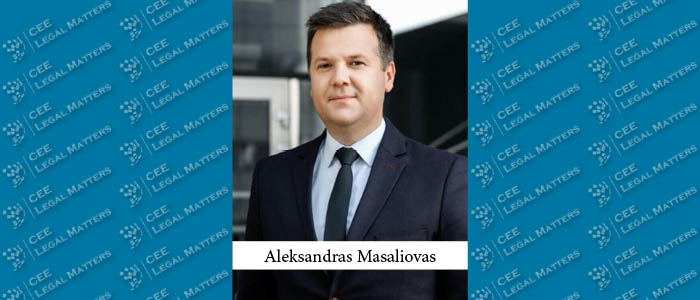The regulatory framework of the Lithuanian labor market underwent several important updates. Most of these developments are concerned with regulating labor migration.
Labor Market Opened for Ukrainian War Refugees
The outbreak of war in Ukraine caused an unprecedented inflow of refugees and migrants into Lithuania and other EU countries. The total number of Ukrainian nationals residing in Lithuania at the outset of 2023 was close to 95,000. To integrate war refugees into the labor market, the Lithuanian Government adopted regulatory measures that resulted in immediate access to employment for temporarily displaced persons. The so-called “Labor Market” test applicable to migrant workers was suspended for Ukrainian nationals and they were allowed to take up employment without applying for clearance from the Lithuanian Employment Service. The number of war refugees from Ukraine working in Lithuania has doubled in 2023 and at the moment it exceeds 26,000. Ukrainian war refugees are mostly employed in transport, production, wholesale, and retail trade industries. All these industries have been experiencing labor shortages in recent years.
Eased Hiring of Highly Skilled Expatriates
Lithuania has established itself as an attractive European hub for international technology and fintech companies. Numerous IT, game development, fintech, and other international industry leaders have started their operations in Lithuania in the course of the last five years. The war in Ukraine increased the presence of international IT and technology businesses as many companies relocated their operations and employees to Lithuania. In 2022, significant amendments were introduced to facilitate the hiring of highly skilled professionals and attract talent from non-EU countries. The Labor Market test was revoked for all non-EU highly skilled professionals seeking employment in Lithuania. Professionals are deemed to be highly skilled if they possess a higher education degree or their three-year or five-year professional experience (depending on a particular occupation) is recognized as equivalent to a highly skilled qualification. The amendments significantly simplified the process of obtaining a Lithuanian residence permit and enabled expatriate employees to relocate to Lithuania and start their work within a one-two-month period. A new list of high-value occupations was adopted to cover shortages of highly skilled professionals. Over 70 different occupations are currently on the list and most of them are within the IT, engineering, and life science fields. All listed shortage occupations are subject to a lower monthly salary threshold than other highly skilled occupations.
Furthermore, highly skilled expatriate employees are now allowed to work for more than one company and have a six-month grace period to find new employment opportunities in the event they quit or lose their initial job. Some other important amendments aimed at improving the conditions of expatriate employees are currently under preparation, including public healthcare insurance coverage for non-working spouses of highly skilled expatriate employees.
Fewer Formalities for Other Migrant Workers
The conditions for entering the Lithuanian labor market were also simplified for other migrant workers from non-EU countries. Given the fact that there is a permanent labor shortage within manufacturing, construction, and other industries (e.g., there were over 17,000 vacancies registered with the Lithuanian Employment Service in September 2023), loosening requirements for recruiting foreign workers is a welcomed step for the Lithuanian economy. Although non-EU workers outside shortage occupations are still subject to the Labor Market test, the procedures of the Lithuanian Employment Service have become less stringent. To pass the test, migrant workers should demonstrate either an appropriate qualification or a minimum of one-year professional experience relevant to the position to be occupied in a Lithuanian company. The latter requirements related to qualification or experience are not applicable if the monthly salary to be paid to the respective migrant worker is not less than the established benchmark of a national average salary. It is also worth mentioning that under the revised rules, Lithuanian temporary employment agencies are permitted to invite non-EU workers and employ them under temporary work arrangements. Previously, Lithuanian temporary employment agencies were not allowed to hire non-EU workers.
External Visa Centers to Handle Residence Permit Applications
From the beginning of 2023, non-EU employees can obtain a work-related Lithuanian residence permit from outside Lithuania by addressing one of the VFS Global visa centers. Such centers are authorized by the Lithuanian Government to handle residence permit applications and operate in 34 countries, including India, Turkiye, Japan, South Africa, Kazakhstan, and the Philippines. Despite frequent practical difficulties during appointments at some of the external visa centers, the opportunity to apply and obtain a Lithuanian residence from outside Lithuania takes another important step forward toward more accessible and facilitated labor migration procedures and practices.
By Aleksandras Masaliovas, Partner, CEE Attorneys Lithuania
















